THANK YOU FOR SUBSCRIBING
“What you leave behind is not what is engraved in stone monuments, but what is woven into the lives of others” - Pericles, Greek statesman, orator and general of Athens.
A hundred and fifty years ago, Florenz Sartorius, a “mechanician” at the Georgia Augusta University in Göttingen, built tools and instruments for the university’s research laboratories.
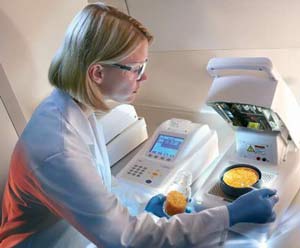 The company evolved, going on to devise incubators with precisely regulated temperatures for poultry farming in the 1890s, and in 1927, Sartorius was one of the cofounders of a company that manufactured membrane filters. Germany’s export rates rose sharply in the 50s, and in keeping pace with these rates, Sartorius built up a network of distribution and sales affiliates spanning the globe. At the end of the 1960s, the world was looking up into space as history continued to be written in Göttingen— Sartorius employees examined the absolute surface of a rare 20.2-milligram sample of moon rock brought back by the Apollo 11 mission.
The company evolved, going on to devise incubators with precisely regulated temperatures for poultry farming in the 1890s, and in 1927, Sartorius was one of the cofounders of a company that manufactured membrane filters. Germany’s export rates rose sharply in the 50s, and in keeping pace with these rates, Sartorius built up a network of distribution and sales affiliates spanning the globe. At the end of the 1960s, the world was looking up into space as history continued to be written in Göttingen— Sartorius employees examined the absolute surface of a rare 20.2-milligram sample of moon rock brought back by the Apollo 11 mission.
“Today, we are a public company and a major player in the food and beverages quality control sector, creating solutions that offer both ease of use and high quality,” states Shigeyuki Nagashima, Manager Product Specialist at Sartorius. Their products, like the Nutrient Pad Sets and Gelatin Filters, are highly sought-after and unique in the market, offering uncompromising efficiency that can save clients time and money. For Sartorius, quality is a legacy— one that spans the ages, and the titles, trickling into the betterment of the lives of people at large.
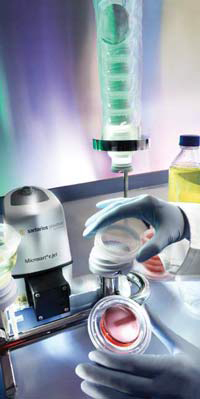 The Industry as it Stands
The Industry as it Stands
Customer requirements and regulations are getting more demanding every year; with the need for frequent food and beverage QC testing and costs becoming more expensive. It directly affects the bottom line wherein every customer is trying to reduce that expense. Sartorius’ products address this challenge by helping them maximize workflows. The prices of its products are not the lowest in the market, but when one considers the total cost incurred—including labour costs—the products are outstanding in balancing both cost and quality. The connection here, specifically in the F&B sector is indicative of the fact that quality issues are not only dependent on the manufactured product, but also related to possible issues with their sourced ingredients.
Food and Beverage QC Solutions Beyond Expectations
Dr. Glenn Manning an Application Specialist from Sartorius adds, “Insufficiently purified water can cause problems in the analytical chemistry laboratories, increasing the height of the baselines in HPLC assays. This may mask impurities in the raw materials, or contaminants in the finished products. Our water purification systems are used in both microbiological testing laboratories and also chemistry labs to provide the pure water needed.” Food manufacturers have saved significant money on water and energy costs by removing water stills and replacing them with laboratory water purification systems to produce media and provide water to their analytical instruments. In processing wine, beer, mineral water, soft drinks, juice, soda or any other beverage, the highest quality from factory to shelf is mandatory. Sartorius offers filtration consumables for F&B with their range of gas filtration solutions, filtration skids, filter housings, integrity testers and a wide variety of customized equipment for beverage applications, along with data analytics solutions. The company can effectively speed up new product development, maximize production yield and improve process reliability.
A hundred and fifty years ago, Florenz Sartorius, a “mechanician” at the Georgia Augusta University in Göttingen, built tools and instruments for the university’s research laboratories.
 The company evolved, going on to devise incubators with precisely regulated temperatures for poultry farming in the 1890s, and in 1927, Sartorius was one of the cofounders of a company that manufactured membrane filters. Germany’s export rates rose sharply in the 50s, and in keeping pace with these rates, Sartorius built up a network of distribution and sales affiliates spanning the globe. At the end of the 1960s, the world was looking up into space as history continued to be written in Göttingen— Sartorius employees examined the absolute surface of a rare 20.2-milligram sample of moon rock brought back by the Apollo 11 mission.
The company evolved, going on to devise incubators with precisely regulated temperatures for poultry farming in the 1890s, and in 1927, Sartorius was one of the cofounders of a company that manufactured membrane filters. Germany’s export rates rose sharply in the 50s, and in keeping pace with these rates, Sartorius built up a network of distribution and sales affiliates spanning the globe. At the end of the 1960s, the world was looking up into space as history continued to be written in Göttingen— Sartorius employees examined the absolute surface of a rare 20.2-milligram sample of moon rock brought back by the Apollo 11 mission. “Today, we are a public company and a major player in the food and beverages quality control sector, creating solutions that offer both ease of use and high quality,” states Shigeyuki Nagashima, Manager Product Specialist at Sartorius. Their products, like the Nutrient Pad Sets and Gelatin Filters, are highly sought-after and unique in the market, offering uncompromising efficiency that can save clients time and money. For Sartorius, quality is a legacy— one that spans the ages, and the titles, trickling into the betterment of the lives of people at large.
 The Industry as it Stands
The Industry as it StandsCustomer requirements and regulations are getting more demanding every year; with the need for frequent food and beverage QC testing and costs becoming more expensive. It directly affects the bottom line wherein every customer is trying to reduce that expense. Sartorius’ products address this challenge by helping them maximize workflows. The prices of its products are not the lowest in the market, but when one considers the total cost incurred—including labour costs—the products are outstanding in balancing both cost and quality. The connection here, specifically in the F&B sector is indicative of the fact that quality issues are not only dependent on the manufactured product, but also related to possible issues with their sourced ingredients.
Food and Beverage QC Solutions Beyond Expectations
Dr. Glenn Manning an Application Specialist from Sartorius adds, “Insufficiently purified water can cause problems in the analytical chemistry laboratories, increasing the height of the baselines in HPLC assays. This may mask impurities in the raw materials, or contaminants in the finished products. Our water purification systems are used in both microbiological testing laboratories and also chemistry labs to provide the pure water needed.” Food manufacturers have saved significant money on water and energy costs by removing water stills and replacing them with laboratory water purification systems to produce media and provide water to their analytical instruments. In processing wine, beer, mineral water, soft drinks, juice, soda or any other beverage, the highest quality from factory to shelf is mandatory. Sartorius offers filtration consumables for F&B with their range of gas filtration solutions, filtration skids, filter housings, integrity testers and a wide variety of customized equipment for beverage applications, along with data analytics solutions. The company can effectively speed up new product development, maximize production yield and improve process reliability.
Today, we are a public company and a major player in the food and beverages quality control sector, creating solutions that offer both ease of use and high quality
With a wide range of process equipment and easy-to-use, smart laboratory products and solutions, Sartorius aims to help users deliver the best quality to customers by enhancing routine workflows while ensuring cost-effective operations. Their core product focus is especially on the microbiological QC lab for which Sartorius offers the total solution ranging from the hardware, like a manifold and a pump, to various media. The company can set pipette and dispensing products, ultrapure water systems and balances everywhere in the Food and Beverage QC lab.
Leading by Example
The company has been providing filters to a mineral water bottling company in Okayama, Japan since 2015. Before collaborating with Sartorius, the client was using traditional reusable systems for microbiological QC, and the need for high-frequency testing bottlenecked their increase in production. “We offered filters to maximize the workflow, but at the beginning of the negotiation, they refused our offer as the price of the filter was not comparable with the traditional membrane filter. A few months later, they realized that they could increase the test frequency drastically with our product, using the same number of people. The production of the bottled water increased and they went on to completely switch the traditional method to our filter,” recalls Nagashima.
In yet another instance, a manufacturer of refrigerated preserved herbs purchased several of Sartorius’ MA160 units. As they have a broad product range, the company’s method library allowed the client to select the unique analysis method for each different herb, added Danielle Aridis-Lang an Application Specialist at Sartorius. The MA160 allows for rapid MA testing, minimizing delays in production.
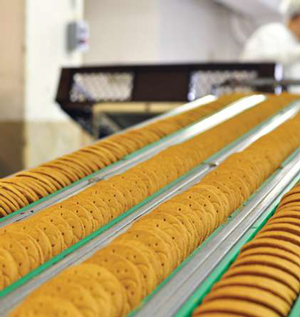 The testimonials are aplenty, with the following being said by the executive at the Nestle R&D Center, India: “We are happy with Sartorius product solutions and equipment support. Timely support and equipment maintenance helps us to complete our projects on time for our markets.”
The testimonials are aplenty, with the following being said by the executive at the Nestle R&D Center, India: “We are happy with Sartorius product solutions and equipment support. Timely support and equipment maintenance helps us to complete our projects on time for our markets.”150 Years on, Still Creating History
Automation, digitalization and networking – these trends will govern future laboratory work. Recognizing this, Sartorius is supporting its customers with intuitive user interfaces, intelligent assistance systems, and automated data management capabilities. To support pharmaceutical clients and other industries including Food and Beverage across their entire value chain, the company is further expanding its portfolio through acquisitions. With innovative offerings in CellAnalysis, Sartorius aims to considerably accelerate the often time-consuming development of new active ingredients and solutions for the F&B industry.


Sartorius News

Sartorius pre-announces preliminary 9-month results and lowers forecast for 2023
I agree We use cookies on this website to enhance your user experience. By clicking any link on this page you are giving your consent for us to set cookies. More info

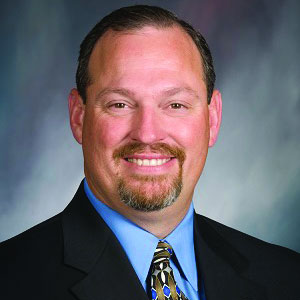


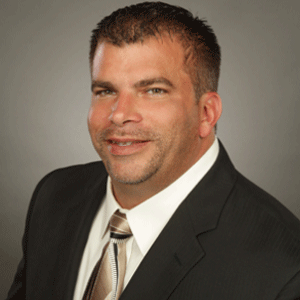
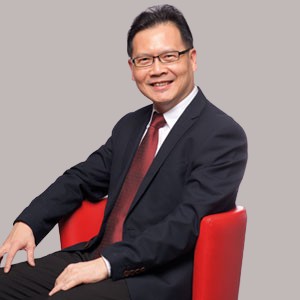
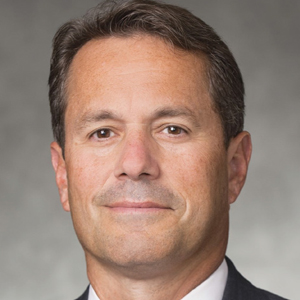
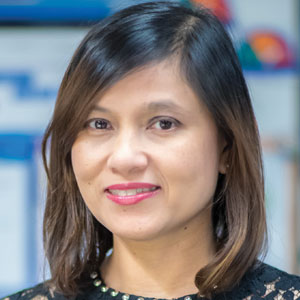
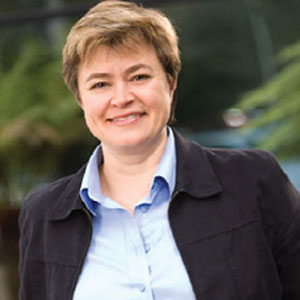
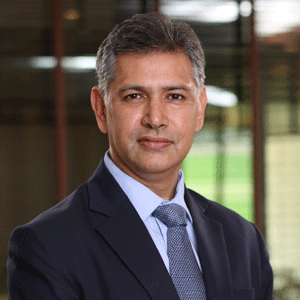

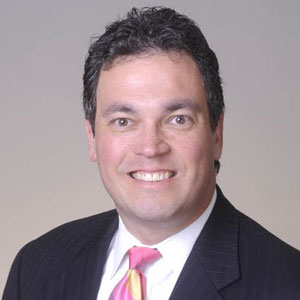


The Bioprocess Solutions division generated preliminary sales revenue of around 1,993 million euros in the first nine months of 2023, a decline of around 18 percent in constant currencies (reported: around -19 percent) from the prior-year figure of 2,471 million euros. Main drivers were the longer than expected ongoing inventory reductions after the end of the Covid-19 pandemic, relatively low production levels at some customers, the discontinued business in Russia and an overall muted investment activity of customers mainly in China and the USA. The division’s preliminary underlying EBITDA declined as a result of volume development and product mix effects to 592 million euros. The resulting margin was around 30 percent (PY: 35.7 percent).
The Lab Products & Services division recorded preliminary sales revenue of around 553 million euros (PY: 642 million euros), which corresponds to a decline of around 11 percent in constant currencies (reported: around -14 percent). The division, which generates a significant portion of its sales with high-quality laboratory and bioanalytical instruments, was impacted by cautionary spending behaviour of customers in the pharma industry, mainly in China and the USA, which has intensified since the third quarter. The preliminary underlying EBITDA reached around 141 million euros (PY: 170 million euros) and the corresponding margin was around 26 percent (PY: 26.5 percent).
Based on current business expectations for both divisions until year end, Sartorius adapts its guidance for fiscal 2023 as follows:
Group sales revenue is expected to decline by around 17 percent; excluding Covid-19-related business, revenue would decline by around 12 percent (previously: sales revenue decline in the low to mid-teens percentage range; excluding Covid-19-related business, decline in the mid to high single-digit percentage range). Acquisitions are still expected to contribute around 2 percentage points to the sales revenue development.
Due to lower volume expectations and product mix effects, Sartorius now expects an underlying EBITDA margin of slightly above 28 percent, after previously forecasting a margin of around 30 (PY: 33.8 percent).
Against the backdrop of a demand recovery, that has been visible since the middle of the year, but which is proceeding only slowly, Sartorius now expects for its Bioprocess Solutions division a sales revenue decline of around 18 percent; excluding Covid-19-related business a decline of around 13 percent (previously: revenue decline in the low to mid-teens percentage range; without Covid-19-related business revenue decline in the high single-digit to low teens percentage range). Acquisitions are still expected to contribute around 2 percentage points to the sales revenue development. The underlying EBITDA margin is expected to be slightly above 29 percent (previously around 31 percent; PY: 35.7 percent).
For its Lab Products & Services division Sartorius now expects a sales revenue decline of around 13 percent, excluding Covid-19-related business a decline of around 10 percent (previously: low single-digit negative to stable sales revenue development; excluding Covid-19-related business, a range from a low single-digit percentage decline in sales revenue to a low single-digit growth in sales revenue). The underlying EBITDA margin should be slightly above 25 percent versus previously around 26 percent (PY: 26.2 percent).
The company confirms its fundamentally positive medium- and long-term market outlook and continues to see itself in a strong competitive position. For 2024, management expects profitable growth and will issue quantitative guidance with the release of the 2023 full-year figures next January. Its mid-term ambition is currently under review and an update will also be provided in January 2024.
Management points out that the dynamics and volatilities in the industry have increased significantly in recent years. In addition, uncertainties due to the changed geopolitical situation, such as the emerging decoupling tendencies of various countries, are playing a greater role. This results in higher uncertainty when forecasting business figures.
All forecast figures are based on constant currencies.
Sartorius will publish the full set of the 9-month figures 2023 as scheduled on October 19, 2023.
Sartorius publishes alternative performance measures that are not defined by international accounting standards. These are determined with the aim of improving the comparability of business performance over time and within the industry.
• Underlying EBITDA: earnings before interest, taxes, depreciation and amortization and adjusted for extraordinary items
• Ratio of net debt to underlying EBITDA: Quotient of net debt and underlying EBITDA over the past 12 months, including the pro forma amount contributed by acquisitions for this period
This notification according to Article 17 MAR contains statements about the future development of the Sartorius Group. The content of these statements cannot be guaranteed as they are based on assumptions and estimates that harbor certain risks and uncertainties. This is a translation of the original German-language announcement. The Sartorius Group shall not assume any liability for the correctness of this translation. The original German ad hoc announcement is the legally binding version. Furthermore, the Sartorius Group reserves the right not to be responsible for the topicality, correctness, completeness or quality of the information provided. Liability claims regarding damage caused by the use of any information provided, including any kind of information which is incomplete or incorrect, will therefore be rejected.